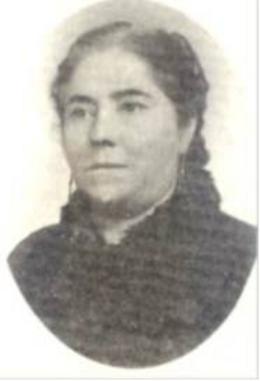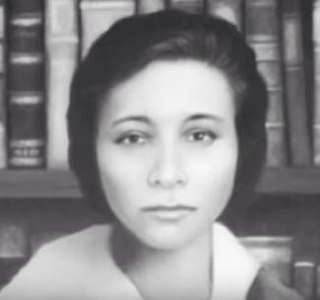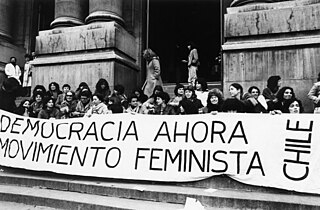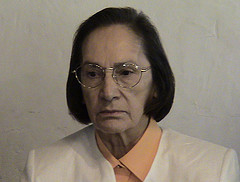Related Research Articles
Women's studies is an academic field that draws on feminist and interdisciplinary methods to place women's lives and experiences at the center of study, while examining social and cultural constructs of gender; systems of privilege and oppression; and the relationships between power and gender as they intersect with other identities and social locations such as race, sexual orientation, socio-economic class, and disability.

Hermila Galindo Acosta was a Mexican feminist and a writer. She was an early supporter of many radical feminist issues, primarily sex education in schools, women's suffrage, and divorce. She was one of the first feminists to state that Catholicism in Mexico was thwarting feminist efforts, and was the first woman to run for elected office in Mexico.
Feminism in Mexico is the philosophy and activity aimed at creating, defining, and protecting political, economic, cultural, and social equality in women's rights and opportunities for Mexican women. Rooted in liberal thought, the term feminism came into use in late nineteenth-century Mexico and in common parlance among elites in the early twentieth century. The history of feminism in Mexico can be divided chronologically into a number of periods with issues. For the conquest and colonial eras, some figures have been re-evaluated in the modern era and can be considered part of the history of feminism in Mexico. At the time of independence in the early nineteenth century, there were demands that women be defined as citizens. The late nineteenth century saw the explicit development of feminism as an ideology. Liberalism advocated secular education for both girls and boys as part of a modernizing project, and women entered the workforce as teachers. Those women were at the forefront of feminism, forming groups that critiqued existing treatment of women in the realms of legal status, access to education, and economic and political power. More scholarly attention is focused on the Revolutionary period (1915–1925), although women's citizenship and legal equality were not explicitly issues for which the revolution was fought. The Second Wave and the post-1990 period have also received considerable scholarly attention. Feminism has advocated for the equality of men and women, but middle-class women took the lead in the formation of feminist groups, the founding of journals to disseminate feminist thought, and other forms of activism. Working-class women in the modern era could advocate within their unions or political parties. The participants in the Mexico 68 clashes who went on to form that generation's feminist movement were predominantly students and educators. The advisers who established themselves within the unions after the 1985 earthquakes were educated women who understood the legal and political aspects of organized labor. What they realized was that to form a sustained movement and attract working-class women to what was a largely middle-class movement, they needed to utilize workers' expertise and knowledge of their jobs to meld a practical, working system. In the 1990s, women's rights in indigenous communities became an issue, particularly in the Zapatista uprising in Chiapas. Reproductive rights remain an ongoing issue, particularly since 1991, when the Catholic Church in Mexico was no longer constitutionally restricted from being involved in politics.

Marta Lamas Encabo is a Mexican anthropologist and political science professor at the National Autonomous University of Mexico (UNAM), and lecturer at the Instituto Tecnológico Autónomo de México (ITAM). She is one of Mexico's leading feminists and has written many books aimed at reducing discrimination by opening public discourse on feminism, gender, prostitution and abortion. Since 1990, Lamas has edited one of Latin America's most important feminist journals, Debate Feminista. In 2005, she was nominated for a Nobel Peace Prize.

María Rosa Torre González was born in the state of Yucatán, Mexico. She was the first woman in Mexico to hold an elected office.

Feminism in Chile has its own liberation language and activist strategies for rights that is shaped by the political, economic, and social system of Chile. Beginning in the 19th century, Chilean women have been organizing with aspirations of asserting their political rights. These aspirations have had to work against the reality that Chile is one of the most socially conservative countries in Latin America. The Círculo de Estudios de la Mujer is one example of a pioneering women's organization during the Pinochet dictatorship (1973–1989) which redefined women's responsibilities and rights, linking “mothers’ rights” to women's rights and women's civil liberties. The founding members of the Círculo de Estudios de La Mujer consisted of a small group of Santiago feminists who were from the Academia de Humanismo Cristiano. These women gathered "to discuss the situation of women in Chile," their first meeting drew a crowd of over 300 participants and from there challenged the authoritarian life in Santiago. These women helped shape the rights for women in Chile.
Feminism in Argentina is a set of movements aimed at defining, establishing, and defending equal political, economic, and social rights and equal opportunities for women in Argentina. Although some women have been considered precursors—among them Juana Manso and Juana Manuela Gorriti—feminism was introduced to the country as a result of the great European immigration wave that took place in the late 19th and early 20th century. The first feminists did not form a unified movement, but included anarchist and socialist activists, who incorporated women's issues into their revolutionary program, and prestigious freethinker women, who initially fought for access to higher education and, later, legal equality with men. The early 20th century was also full of women fighting for their freedom and rights in the workplace. Despite the efforts of the first-wave feminists, Argentine women did not acquire the right to vote until 1947, during Juan Perón's first government. His highly popular wife, Eva, championed women's suffrage and founded and ran the nation's first large-scale female political party, the Female Peronist Party. Although she refused to identify herself as a feminist, Eva Perón is valued for having redefined the role of women in politics.
Alaíde Foppa was a Guatemalan poet, writer, feminist, art critic, teacher and translator. Born in Barcelona, Spain she held Guatemalan citizenship and lived in exile in Mexico. She worked as a professor in both Guatemala and Mexico. Much of her poetry was published in Mexico and she co-founded one of the first feminist publications, Fem, in the country. After her husband's death, she made a trip to Guatemala to see her mother and renew her passport. She was detained and disappeared in Guatemala City on 19 December 1980, presumed to be murdered. Some sources note the date of her disappearance as 9 December 1980.
Margarita García Flores was a Mexican lawyer, activist, writer and politician; she was also involved in women's suffrage. García cofounded Fem magazine with Alaíde Foppa in 1976; it was the first Latin American feminist magazine. She served as director of Universitarios and Prensa, as well as the publications of National Autonomous University of Mexico. García was also a delegate from Cuajimalpa (1976–80), deputy for III Distrito Electoral Federal de Nuevo León (1973–76), and a deputy for Distrito IV de Nuevo León (1955–58).

Ximena Bedregal Sáez is a Chilean-Bolivian architect, writer, theoretician, professor, editor, photographer, and feminist lesbian. In Mexico, she founded Centro de Investigación, Capacitación y Apoyo a la Mujer, and edited its magazine, La Correa Feminista.

Latin American feminism is a collection of movements aimed at defining, establishing, and achieving equal political, economic, cultural, personal, and social rights for Latin American women. This includes seeking to establish equal opportunities for women in education and employment. People who practice feminism by advocating or supporting the rights and equality of women are feminists.

Esperanza Brito de Martí was a Mexican journalist, feminist and reproductive rights activist. She was the director of Fem magazine for nearly 30 years and wrote as a correspondent for several newspapers and magazines. Her journalism was honored with the National Journalism Prize "Juan Ignacio Castorena y Visúa". She was an advocate for both contraception and abortion rights. Through her many activities, she co-founded the Coalición de Mujeres Feministas, the Movimiento Nacional de Mujeres and pressed for the founding of the first Rape Crisis and Guidance Center (Coapevi), first agency for dealing specifically with sexual crimes, first Center for Domestic and Sexual Violence (NOTIFY). In 1998, the first Center for Support of Women which was named after her was opened.
Fourth-wave feminism is a feminist movement that began around the early 2010s and is characterized by a focus on the empowerment of women, the use of Internet tools, and intersectionality. The fourth wave seeks greater gender equality by focusing on gendered norms and the marginalization of women in society.
The Latin American and Caribbean Feminist Encuentros are a series conferences which began in 1981 to develop transnational networks within the region of Latin America and the Caribbean. The main focus of the conferences was to discuss and evaluate how women's marginalization and oppression could be eliminated given the existing economic and political systems by forming networks and strategies to create alternatives to existing norms. At times contentious, the various conferences explored what feminism meant—whether it was an inclusive movement or limited by social class, racial make-up, or sexuality; whether it was militant or passive; whether it was political, social, or economic; whether it was designed to work within patriarchal systems or needed to create new systems; and even whether accepting funding invalidated being feminist. Numerous initiatives recognizing diverse groups of women, such as Black and indigenous women, lesbian women, and various cultural and economic groups were spawned by the dialogues. The conferences are an ongoing attempt to negotiate strategies in an attempt to change region-wide policy agendas toward women.

Margarita Pisano Fischer was a Chilean architect, writer, theoretician, and feminist belonging to the Movimiento Rebelde del Afuera.
María Elena Urritia was a Mexican journalist, writer, researcher, and activist. She played a key role in starting the feminist magazine Fem. She was the fourth of six children born to conservative Catholic parents.

The First Feminist Congress of Yucatán was a gathering of Mexican feminists that happened in 1916. The delegates gathered at the José Peón Contreras Theater in Mérida, Yucatán, Mexico from January 13 to 16. It was held under the auspices of the Yucatecan government. The Mexican government and historians largely consider it the first of its kind in the country. It was the second to be held in all of Latin America and the Caribbean, the first held in Argentina in 1910.
Yan María Yaoyólotl is a lesbian feminist activist and a Mexican feminist artist, painter, curator and cultural promoter. She was co-founder of the groups Lesbos (1977) and Oikabeth (1978) which have their origins in the lesbian-feminist movement in Mexico.

Teresita de Barbieri García, was an Uruguayan feminist sociologist, academic, and researcher based in Mexico. A researcher in social sciences and gender studies, she was a pioneer in research on the condition of women in Latin America from the Institute of Social Research of the National Autonomous University of Mexico (UNAM). A socialist militant, she survived the 1973 Chilean coup d'état and went into exile in Mexico where she developed her research career. A sociologist at the Latin American Faculty of Social Sciences (FLACSO), she researched the daily life of women, the Latin American feminist movement, reproductive health, secularism and, in particular, population and development. She wrote articles for various newspapers and magazines, including Fem magazine and the "La Doble Jornada supplement" of La Jornada newspaper, as well as for Cimacnoticias (CIMAC).
Autonomous feminism is a narrowly documented framework that appears particularly when discussing Latin American Feminisms. There is no concrete definition that belongs to Autonomous feminism, but rather a culmination of dispersed ideas. Autonomy in itself refers to "the idea that individuals are entitled to exercise self-determining authority over their own lives." Feminist theories regarding autonomy directly correlates to how systematic gender oppression hinders the abilities of women to be "self-determining" and "self-governing". Moreover, autonomy is a core and evolving concept within feminism and respective feminist identities. The basis of autonomy goes against and aims to demolish gender-based oppressions. Some of these oppressions include lack of abortion rights, gender violence in both the public and private spheres, and the lack of justice for murdered and disappeared relatives. Moreover, gender oppression can also take the form of sexual harassment/exploitation, inequalities of opportunity, and gender-based discrimination. In addition, some important autonomous demands include political party independence, choice in the space of whether or not to join male allies, and a criticism of "money king".
References
- ↑ Morgan 1984, p. 440.
- ↑ Hernandez 2003, p. 173.
- ↑ Zamora Márquez, Anaiz (5 December 2014). "Abiertos tres juicios por desaparición de feminista Alaíde Foppa" (in Spanish). Mexico City, Mexico: Cimac Noticias. Retrieved 22 April 2015.
- ↑ Lagunes Huerta, Lucía (28 January 2018). "Teresita de Barbieri: precursora de la investigación feminista | Cimac Noticias". cimacnoticias.com.mx (in Spanish). Archived from the original on 28 June 2018. Retrieved 20 April 2023– via web.archive.org.
{{cite news}}: CS1 maint: bot: original URL status unknown (link) - 1 2 3 Mariscal, Sonia. (2014). “I am not a feminist!!!” Feminism and its Natural Allies, Mexican Feminism in the 70s/80s. Thinking Gender 2014. UCLA: UCLA Center for the Study of Women. Retrieved from: http://escholarship.org/uc/item/7c7114jz
- ↑ Parra Toledo, Alejandra (3 October 2005). "Fem publicación feminista pionera en América Latina se convierte en revista virtual". La Jornada (in Spanish). Retrieved 23 April 2015.
- ↑ Güereña & Pisano 1998, p. 83.
- ↑ Rebecca E. Biron (Spring 1996). "Feminist Periodicals and Political Crisis in Mexico: "Fem, Debate Feminista, and La Correa Feminista" in the 1990s". Women and the State in the Americas. 22 (1): 151–169. JSTOR 3178251.
- ↑ Macdonald, R. (2004). JSTOR: A History20047Roger C. Schonfeld. JSTOR: A History. Princeton, NJ: Princeton University Press 2003. 412 pp., ISBN 0691115311. The Electronic Library,22(1), 84-85. doi : 10.1108/02640470410520203